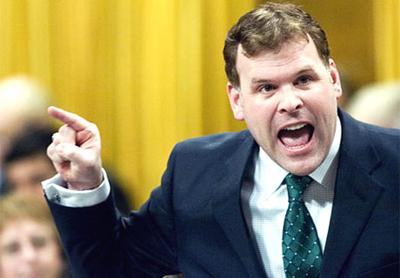Foreign Affairs Minister John Baird has spoken out against an anti-homosexuality bill that recently passed the Nigerian senate.
“Canada calls on Nigeria to immediately ensure that all its citizens enjoy equal basic rights,” Baird said in a press release. “A bill passed by Nigeria’s senate would, if ratified, disregard basic human rights and fundamental freedoms. The government of Nigeria must protect all Nigerians, regardless of sexual orientation. Through the Commonwealth and other forums, Canada will continue to make this point in the most forceful of terms.”
Gay sex is criminal in the sub-Saharan African country, but this law would make a same-sex marriage punishable by a 14-year jail sentence and would further criminalize witnesses or supporters. It would also ban gay rights groups in the country. The bill awaits full adoption before it becomes law.
Canada’s position is a good first step, according to both the Liberals and NDP, but both parties say the government needs to do more.
“Every time something like that happens, the Canadian government should condemn [these laws] very firmly, so we think it was the right thing to do,” says Hélène Laverdière, the NDP foreign affairs critic. “At the same time, the government tried to bring the issue at the Commonwealth meeting, and it didn’t meet with success.”
Laverdière, a former diplomat, says that Canada needs to work with like-minded countries to establish a game plan for addressing the situation on a longer-term basis, especially by determining the forums where we can address the issue.
“We could even say you have very good links with those countries that I think we can bring onboard on our side,” Laverdière says. “So you, France, or you, England, work with those, a real game plan, and then start the hard, long diplomatic work. That’s the only way to go.”
Liberal foreign affairs critic Dominic LeBlanc says the Nigerian bill is “perverse.”
“This kind of appalling legislation runs against every single basic element of equality,” he says. “My view is that we shouldn’t in any way allow the Nigerian government to escape without consequences should this law ultimately be enacted.”
Nigeria is a Commonwealth country and there had been talk in the United Kingdom of withholding any aid funding to countries that refuse to decriminalize homosexuality. Laverdière is not sure that is the way to go. Nigeria is the world’s eighth largest exporter of petroleum products, and Canada has bilateral trade relations with its government, including some support for healthcare programs in the country.
“We should be very careful when we look at those options, because we don’t want to take actions that will hurt the people,” Laverdière says.
LeBlanc says embargoes may be appropriate if properly applied.
“I think fair-minded Canadians would be surprised to know that in the last year, we contributed almost $60 million in bilateral and multilateral aid to Nigeria, and if the way the government of Nigeria decides to conduct itself is to completely disrespect the rights of gay and lesbian persons, I don’t know why the government would want to continue to support the government of Nigeria,” LeBlanc says.


 Why you can trust Xtra
Why you can trust Xtra


